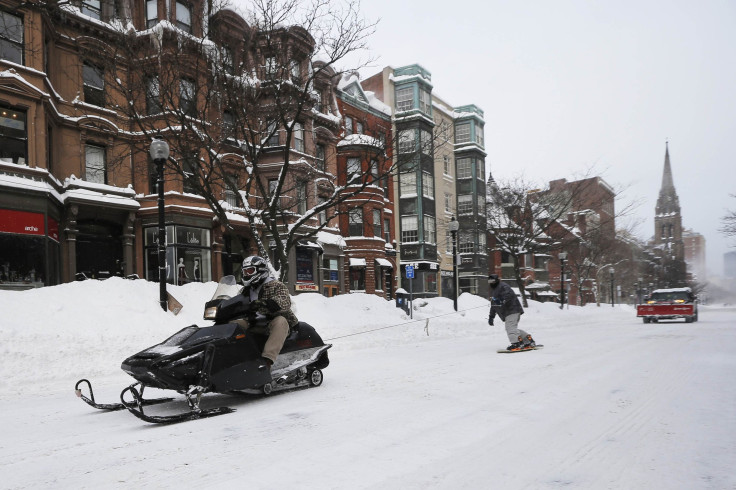Winter Storm Pandora Update: Latest Blast To Hit Through Weekend

Already battered by weeks of heavy snowfall in New England and icy-cold temperatures throughout the Northeast, the region is among those likely to be hit by a fresh band of snow, sleet and icy rain Saturday and Sunday. Dubbed Winter Storm Pandora by the Weather Channel, the system is expected to bring more freezing cold to the Northeast through Monday on the heels of a week of record-breaking low temperatures in cities along the East Coast and in the Midwest, Reuters reported.
The system will continue moving northeastward to New England from the Mississippi Valley states during the weekend, according to the National Weather Service. The NWS has issued winter-storm warnings, watches and advisories along its actual and projected path.
Two Illinois municipalities, Springfield and Buffalo, both were covered by at least 10 inches of snow between Friday at 3 p.m. CST (4 p.m. EST) and Saturday at 9 a.m. CST (10 a.m. EST), the NWS said. The service will update its storm summary Saturday at 9 p.m. CST (10 p.m. EST).
At least 20 people have died as a result of the arctic blast that has pummelled the U.S. and southern Canada in recent weeks, according to weather.com. Boston and the rest of New England have been hit the hardest in terms of snowfall, with the Massachusetts capital city getting by a little less than 100 inches this winter. That’s more than three times the typical annual total.
“This week ranks among the most intense arctic outbreaks so far in the 21st century for the eastern U.S., and it’s certainly one of the most impressive cold air masses we’ve seen this late in the winter season,” weather.com senior meteorologist Nick Wiltgen said Saturday.
Schools were closed Friday as far south as Alabama. The storm dropped freezing rain and a wintry mix between Missouri and Alabama, making commutes there extremely dangerous. Meanwhile, cities such as New York and Washington had record-breaking low temperatures at some of their weather stations in the past week.
© Copyright IBTimes 2024. All rights reserved.












